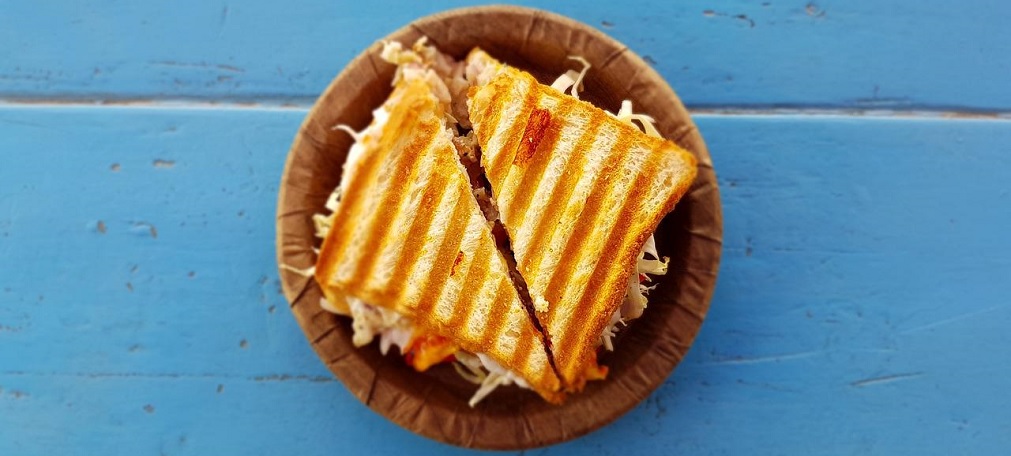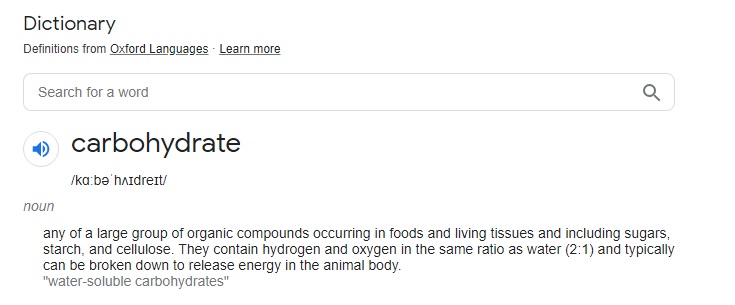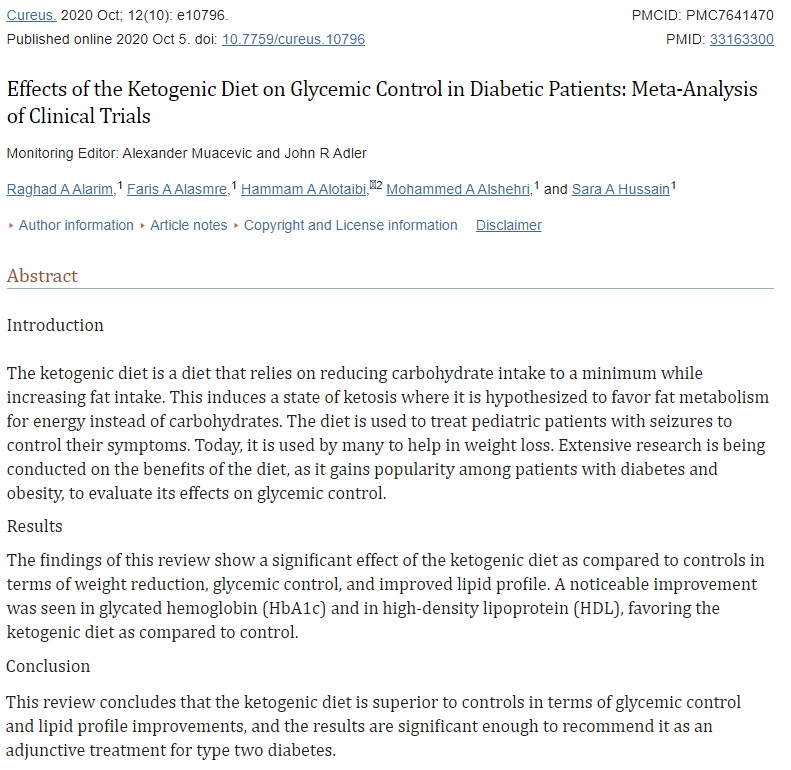Keto, Paleo or Low Carb?

Are carbs stealthy killers, existing only to deprive you of wellness and burden you with chronic disease in the process?
Or are carbohydrate-rich whole foods holy grails of health, as they deliver fibre, micronutrients and plenty of energy to burn?
Government affiliated organisations would have you believe that “complex carbohydrates” and sugars in moderation promote energy and vitality, supporting a healthy and active lifestyle.
Yet proponents of low carb eating plans might encourage you to believe that carbs are literally poison.

Of course, some carbs are healthier than others!
But where does the truth sit?

Does the one-size-fits-all approach even work for a macronutrient?
Perhaps optimal carbohydrate intakes change from person to person, depending on health requirements, activity level, body composition and other factors?
Before we go any further, let’s clear something up first.
Carbohydrates and sugars are not regarded as essential nutrients by the Australian Government.
Some experts believe that we can get by without them, living full and active lives.
There is no Recommended Dietary Intake (RDI) for carbohydrates, even though there is for essential amino acids (protein), essential fatty acids (lipids), vitamins and minerals.
So case closed, right?
Zero carbs diets must be the way to go …
If only nutrition was so clear-cut and uncomplicated.
It might seem counterintuitive that we need glucose in our blood at all times in order to stay conscious.

Fortunately, glucose (pure sugar) can be produced in the human body from many other nutrients, such as certain amino acids and fatty acids.
This ensures that even on extremely low carb diets, our blood sugar remains relatively constant.
This doesn’t mean that low carb diets don’t have any physiological effect- they certainly do.
Low carb, Atkins and keto diets have become popular for a reason.
For some, they can offer real benefits- at least in the short term.
As with most reasonable answers to complex questions, the truth is more ambiguous than anyone would ever want.
Ambiguity can be complex to implement into one’s life!
If your understanding of carbs so far is no clearer, don’t worry.
Answers are coming.
The fact remains, some people feel healthier than others without significant carbohydrate sources in their diets.
While others may feel flat and tired without them, even after an adaptation period.
For some, consuming enough food can be tricky without carbohydrate sources, especially for athletes and bodybuilders.
As it turns out, too much of anything can create health issues.
And if you can imagine the blood sugar impacts of potato chips, donuts, sugary energy drinks and white bread on the body, without much physical activity.
Before we go any further, let’s take a look at the basic food philosophy behind some of the low carbohydrate diets of today.

Ketogenic Diet
Also called the “keto” diet, this dietary approach incorporates high fat foods and a very low carbohydrate content.
Essentially, you are only deemed to be in “ketosis” once the body starts creating ketone bodies.
Ketone bodies are metabolic by-products that are created as a result of not slowing down a pathway in the body that is responsible for converting glucose to energy.
This leads to the ability to detect these ketone bodies in the urine with a simply home test kit, available at most pharmacies and health food stores.
Typically, diabetics rely on these urine tests to monitor their condition.
This is because diabetics can’t take up sugar into the cell very efficiently, leading to a similar closing down of the conversion of glucose to energy and ketone body creation.
The ketogenic diet is the most extreme low carb diet, as it calls for the consumption of as close to zero carbs as is possible.
Atkins Diet
The Atkin’s Diet was developed by Robert Atkin, a medical doctor and cardiologist, in the 1970s and focused on a low carbohydrate intake, with the unrestricted consumption of foods rich in fats and proteins, including saturated fat.
Dr Atkins promoted meals such as bacon and eggs for weight loss, while limiting grains and sugar. Dr Atkin’s book sold so many copies that it entered the top 50 global sellers of all time.
The Atkin’s diet was the first true low carb eating plan, turning away from mainstream recommendations at the time that were low fat.
Paleolithic Diet
Often referred to as the Caveman diet, the Paleolithic Diet includes foods that were typically consumed during the period dating from 2.5 million to 10,000 year ago.
Foods recommended on the Paleo diet predate the agricultural revolution, limiting dairy products, grains and legumes.
Proponents of the diet believe that modern humans are genetically mismatched to their current diet, some of which from an evolutionary perspective have only been around for a short period of time.
Agricultural Experiment Gone Wrong?
The Issue of Carbohydrate Abundance
For the majority of human existence, we were hunter gatherers that foraged about for food and hunted wild game.
This method for acquiring food required a high energy output through exercise.
As it turns out, chasing wild boars on foot with a spear in hand is quite aerobically demanding.
Certainly, doing some preacher curls and triceps extensions for a nice arm pump, whilst sipping on a flavour-packed pre-workout for extra energy, doesn’t quite compare!
So not only did our ancestors expend additional energy in search of food, but we also consumed leaner animals.
Why were animals lean? Because they spent a large portion of their existence running away from us, those bipeds with a hungry gaze, as opposed to a sedentary life in a fenced off space.
Now, this article isn’t about telling you to eat more meat- or any at all for that matter.
Meat consumption, though certainly a large part of ancestral diets, is these days as much an ethical issue as a nutritional one.
This topic is well beyond the scope of this article, which would need to cover the areas of spirituality, philosophy, environmental factors and more.
With the agricultural revolution, humans shifted their lifestyle from hunter gatherer to one of agriculture and settlement.
And with agriculture, we found out that growing sugar cane and wheat weren’t so hard after all.
And so began a high carbohydrate intake and an experiment on the biological tolerance of carbohydrates.
From Whole Grains to Skittle-Stuffed Donuts
Apart from the glaring issues that the agricultural revolution have impressed upon us over thousands of years, there is also the issue of food processing.
Around the year 1800, the industrial revolution was forging new paths in manufacturing with the power of electricity powered machines.
This made food processing and production something that could be performed on a large scale, providing new and interesting foods for the masses.

So if the agricultural revolution was just a blink of the eye in terms of human existence, the industrial revolution is perhaps the equivalent of a neuron firing in our brain.
From hunting and gathering foods over 10,000 years ago, to growing whole grains, sugar cane and eating meat from sedentary animals, to jamming those grains and sugars through machinery to further remove fibre, minerals and speed up sugar absorption.
Can you start to see the issues that this might create on a genome that slowly evolves over hundreds of thousands of years?
How would pancakes covered in syrup for breakfast, followed by a burger and fries for lunch and mac and cheese dinner impact our metabolic health?
Just think how obscene this type of food would be in the context of a hunter-gatherer lifestyle when presented to one of our human ancestors.
Interestingly, a class-action lawsuit has recently begun oven a popular confectionary item due to the health effects of titanium dioxide, which is included as an ingredient.
Metabolic Resourcefulness
No human metabolic pathway has infinite resources.
This is because the human body is regulated by our genetic limitations and finite capacity to create enzymes and other proteins.
Even these limitations have a ceiling that is typically lowered by nutritional resources.
Think of it like this.
Take a production line wherein a machine labels cans of creamed corn. And before the label is applied, glue is pressed to the back of the label.
If we try to push too many cans through the production line, we’ve got a problem.
If we don’t have enough glue to make the labels stick, we’ve also got a problem.
In this analogy, the glue is our nutritional resources of zinc, magnesium, chromium and other insulin-sensitising nutrients.
And the cans of creamed corn are carbohydrate rich foods.
So if we keep pushing loads of carbohydrates into our system on a meal by meal basis, every day, we could run into some issues as our metabolism eventually fails to manage the load.
And if we don’t provide enough micronutrients to assist with the process, we can speed up the metabolic crisis.
So it isn’t so much that all carbohydrates are poison so much as the fact that our system can become overload and develop nutritional deficiencies.
A Break from an Offending Agent
In life, it’s nice to take a break every now and then.
When you’ve been working too hard for too long, stepping out of the regular square of your standardized existence can be rejuvenating and enjoyable.
So to, when we’ve overdone our carbohydrate intake for too long, it can be a rewarding for your health to take some time out.
This may mean sticking to low carb diet for a few months or a few years, depending on where you’re at with your health.
If you’re a 120kg weight lifter, moderating your carbohydrate intake might be as simple as cutting back to 40 grams per meal, selected from quality whole foods sources.
For most, under 10 grams of carbohydrates per meal, from quality sources, might be the way to go.
And these types of whole foods sources are:
- Whole Grains.
- Some Fruit.
- Brown Basmati/Wild/Black Rice.
- Sweet Potato.
- Legumes.
- Peas.
- Green Leafy Vegetables.
- Cruciferous Vegetables (cabbage, cauliflower, broccoli etc)
If you prefer to take a preventative approach to health, you may like to moderate your carbohydrate intake permanently.
However, it’s important to remember that going to zero carbohydrate long-term may not be wise.
More evidence is emerging that ketogenic diets when strictly adhered to in the medium to long term may lead to adverse health outcomes.
However, the short term application of these diets may still be advantageous in establishing some rapid glycemic (blood sugar control) in those that need it.
All in all, there are many factors to consider when approximating your carbohydrate intake.
You may find that speaking to a qualified healthcare practitioner is the best way to go.
Just never forget the importance of being objective and taking the time to experiment with your diet and listen to your body.
If your body is saying, "It needs Tim Tams", it may just be that you're a little out of tune with its needs.











